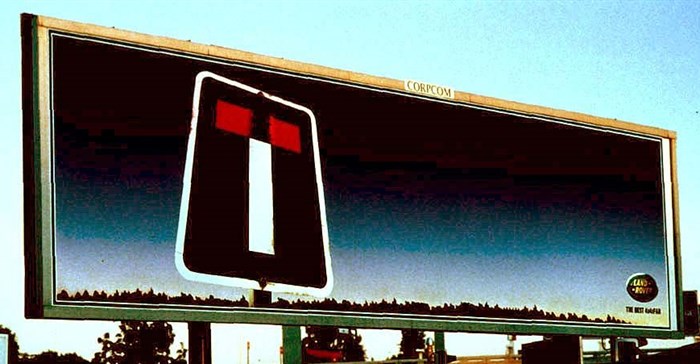Honesty can be a narrow path to creativity, it is where the magic happens. But are we losing sight of that?

Source: © adeevee.com
addeevee.com That print ad that went on to win a D&AD Pencil
I believe the most valuable tool we have as creative professionals is honesty. Honest debate leads to great work. The type of work that makes you jealous and, at the same time, that you want to tell everyone about it.
My first taste of creative honesty was when I studied at the Red & Yellow School under the late Brian Searle-Tripp. If I were to describe Brian’s teaching style in a sentence, it would be ‘brutal honesty that makes you try harder and do better’.
The craft skills of a plumber
Sure, this wasn’t for everyone, but as a tough-skinned, ambitious, and very clueless young art director, being told ‘the only thing missing from this idea, is an idea’ or ‘you have the craft skills of a plumber’ was the honesty that inspired me to try harder and do better.
Fast forward a few years and I was working at DDB under Gareth Lessing. He used to tell the story of his first gig as an intern working for Tony Granger. As all creatives do at first Gareth was struggling to figure out how to crack great ideas.
Tony said to him, “You work late, and I get in early. So, every night I want you to fill your door with ideas and I’ll look at them when I get to the office in the morning.”
For a month, Gareth stayed late, covering his door with ideas and every morning when he got to work, all his ideas from the night before would be lying on the floor. Tony hadn’t liked them. Then one day, after four weeks of this, Gareth got to the office, and there was a single scamp left on his door. That print ad went on to win a D&AD Pencil.
That’s honesty at its best.
Tony knew that if he settled for an ok idea to leave on the door, Gareth would have a false sense of what was good enough and that wouldn’t benefit anyone.
Creating strong relationships
As we create more compassionate workplaces, honesty becomes harder. Deep down, we know it hurts to tell someone you don’t like their idea.
So rather than being honest, we settle for average, which benefits nobody. What if we can create work environments that allow people to feel welcome and appreciated but also make space for complete honesty?
The answer lies in first creating strong relationships built on respect, trust, friendship, and common goals, and then encouraging a culture of honesty.
I worked with a great copywriter for many years, and we made some cool work together. What I enjoyed about working with him was that we were able to be absolutely honest with each other because we had a strong relationship.
However harsh or critical our opinions were of each other’s ideas, it never had a negative effect on our friendship.
Eight hours of critiquing one another’s ideas were often followed by a burger and many laughs. The fact that we got on, meant we could disagree. And that meant better ideas when we did agree.
We became friends as we became each other’s toughest critics. When we brainstormed, the unwritten rule was if the other guy didn’t buy into your idea, then no one else was likely to either.
Brainstorming the wrong way
But if one of us had an idea that the other couldn’t find fault with, then we knew we were onto something good. And the best part was that we would then both be equally committed to selling and executing it.
I think most people brainstorm the wrong way. They take each other’s ideas, and they try to love them. They help build them up and ignore the faults. And the result is usually pretty average. Everyone walks away feeling content and happy, carrying an A2 pad filled with lukewarm ideas.I believe an alternative approach produces better results.
Find people you like and trust, build a strong relationship and then be honest about each other’s ideas. I can guarantee that the ideas through this process will be much better.
The truth is honesty works. But it’s a lot easier, to be honest, knowing you’ll still be friends afterwards.
A few practical points
- In a new partnership with a team member, client, or supplier, first, build the relationship, and then dial up the honesty — a little bit like the Japanese custom of Nomikai, a business custom used to solidify relationships. In any new business partnership, they first go out drinking together and then talk business the next day.
- Be sensitive to your team’s different personalities, cultures, and ages. Honesty to some, especially younger creatives who don’t yet have the confidence in their own abilities, can sometimes deter them from sharing their ideas because they don’t like the feeling of being wrong. It’ll help to constantly re-iterate that we are never critical of the person, only of the ideas.


































